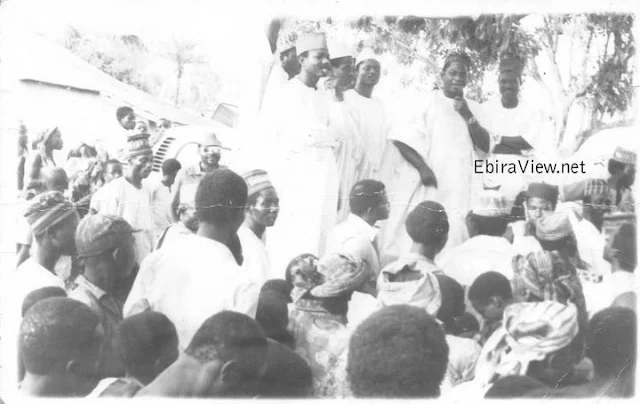In this photo taken in the 70s, Ado Ibrahim (now the Ohinoyi of Ebiraland) is seen campaigning for the Governorship seat of the old Kwara state. He contested against his brother, Alhaji Adamu Atta on the platform of National Party of Nigeria (NPN).
Even as a minority tribe, two brothers of Ebira extraction contested the highest political office in the old Kwara state and Adamu Atta-through majority support from various ethnic groups- won the elections and became the first Ebira Governor of the state. This was indicative of fairness, equity and inclusion policy that once commanded politics in Nigeria.
Will these principles ever hold sway on the modern Nigeria politics? Is any politician, irrespective of his ethnicity or party affiliation willing to make the ultimate sacrifice as 2011 beckons?

Comments
Post a Comment
Please include your name in your comments.
Thanks.